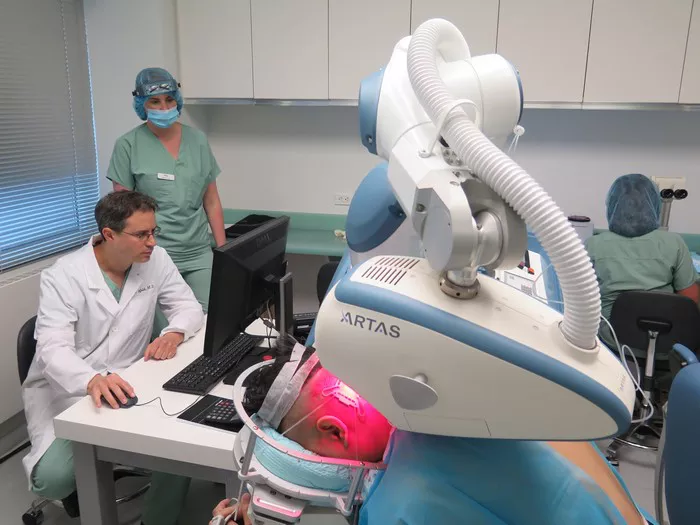Hair transplantation is a common solution for those suffering from hair loss. Post-surgery care is crucial for optimal results. One important aspect is ensuring proper nutrition, including vitamins. This article explores the essential vitamins to take after hair transplantation, focusing on their benefits and recommended intake.
Understanding Hair Transplantation
Hair transplantation involves moving hair follicles from one part of the body to another. This surgery is often used to treat male pattern baldness. The success of the procedure depends on various factors, including post-surgery care.
Why Post-Surgery Care is Important
After a hair transplant, the scalp needs time to heal. Proper nutrition supports this healing process and promotes hair growth. Vitamins play a vital role in ensuring that the body gets the necessary nutrients for recovery and hair regeneration.
Essential Vitamins for Post-Transplant Care
1. Vitamin A
Vitamin A is essential for cell growth, including hair cells. It helps produce sebum, an oily substance that moisturizes the scalp and keeps hair healthy.
Benefits of Vitamin A:
Promotes hair growth.
Keeps the scalp moisturized.
Prevents hair breakage.
Recommended Intake:
Men: 900 micrograms (mcg) per day.
Women: 700 mcg per day.
See Also: The 6 Best Robotic Hair Transplants
2. Vitamin B Complex
The B vitamins are crucial for hair health. Each B vitamin has a specific role in maintaining healthy hair.
Biotin (Vitamin B7)
Biotin is perhaps the most well-known B vitamin for hair health. It strengthens hair and nails.
- Benefits of Biotin:
Strengthens hair follicles.
Reduces hair breakage.
Promotes hair growth.
- Recommended Intake:
Adults: 30 mcg per day.
Niacin (Vitamin B3)
Niacin improves blood circulation to the scalp, promoting hair growth.
- Benefits of Niacin:
Enhances blood flow to the scalp.
Promotes hair growth.
Reduces inflammation.
- Recommended Intake:
Men: 16 milligrams (mg) per day.
Women: 14 mg per day.
Pantothenic Acid (Vitamin B5)
Pantothenic acid helps strengthen hair and prevent hair loss.
- Benefits of Pantothenic Acid:
Strengthens hair follicles.
Prevents hair loss.
Promotes healthy scalp.
- Recommended Intake:
Adults: 5 mg per day.
3. Vitamin C
Vitamin C is an antioxidant that helps protect hair follicles from damage. It also aids in collagen production, essential for hair structure.
Benefits of Vitamin C:
Protects hair follicles.
Promotes collagen production.
Improves hair texture.
Recommended Intake:
Men: 90 mg per day.
Women: 75 mg per day.
4. Vitamin D
Vitamin D is vital for hair follicle cycling and promoting new hair growth.
Benefits of Vitamin D:
Supports hair follicle health.
Promotes new hair growth.
Reduces hair shedding.
Recommended Intake:
Adults: 600 International Units (IU) per day.
5. Vitamin E
Vitamin E is an antioxidant that helps repair damaged hair follicles and promotes healthy hair growth.
Benefits of Vitamin E:
Repairs damaged hair follicles.
Promotes healthy hair growth.
Improves blood circulation to the scalp.
Recommended Intake:
Adults: 15 mg per day.
Minerals for Hair Health
6. Iron
Iron is essential for carrying oxygen to hair follicles. A deficiency can lead to hair loss.
Benefits of Iron:
Enhances oxygen supply to hair follicles.
Prevents hair loss.
Promotes hair growth.
Recommended Intake:
Men: 8 mg per day.
Women: 18 mg per day (premenopausal), 8 mg per day (postmenopausal).
7. Zinc
Zinc plays a crucial role in hair tissue growth and repair.
Benefits of Zinc:
Promotes hair tissue growth.
Repairs hair follicles.
Regulates oil glands around hair follicles.
Recommended Intake:
Men: 11 mg per day.
Women: 8 mg per day.
8. Magnesium
Magnesium helps in protein synthesis, which is essential for hair growth.
Benefits of Magnesium:
Aids in protein synthesis.
Promotes hair growth.
Reduces hair loss.
Recommended Intake:
Men: 400-420 mg per day.
Women: 310-320 mg per day.
Supplementation vs. Natural Sources
Benefits of Natural Sources
Obtaining vitamins from natural food sources is often more beneficial. Foods provide a complex nutritional profile that supplements may lack.
Foods Rich in Essential Vitamins:
Vitamin A: Carrots, sweet potatoes, and spinach.
Vitamin B Complex: Eggs, nuts, and whole grains.
Vitamin C: Oranges, strawberries, and bell peppers.
Vitamin D: Fatty fish, fortified milk, and egg yolks.
Vitamin E: Almonds, sunflower seeds, and spinach.
Iron: Red meat, lentils, and spinach.
Zinc: Oysters, beef, and pumpkin seeds.
Magnesium: Dark chocolate, avocados, and nuts.
When to Consider Supplements
Sometimes, diet alone may not provide enough vitamins. In such cases, supplements can help. Consult with a healthcare provider before starting any supplement regimen.
Potential Risks of Over-Supplementation
While vitamins are essential, taking too much can be harmful.
Vitamin A Toxicity
Excessive vitamin A can lead to toxicity, causing symptoms like dizziness, nausea, and even hair loss.
Vitamin D Overdose
Too much vitamin D can cause calcium buildup in the blood, leading to nausea, vomiting, and kidney problems.
Iron Overload
Excessive iron can lead to organ damage and other serious health issues.
Balancing Intake
It’s crucial to balance vitamin intake, considering both diet and supplements. Regular blood tests can help monitor vitamin levels.
Conclusion
Proper nutrition is vital for the success of a hair transplant. Vitamins play a key role in supporting hair growth and recovery. Incorporating essential vitamins like A, B complex, C, D, and E, along with minerals like iron, zinc, and magnesium, can promote healthy hair. Balancing natural food sources with supplements ensures optimal intake. Always consult with a healthcare provider to tailor a post-transplant vitamin regimen to individual needs. With the right care, achieving desired hair transplant results is within reach.
Related topics:

